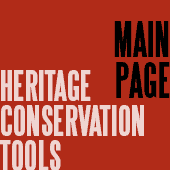- Heritage 101
- Advocacy
- Accessibility for Historic Places
- Climate & Sustainability
- Cultural Maps
- Heritage Place Conservation
- Heritage Policy & Legislation
- Homeowners
- Intangible Cultural Heritage
- Reconciliation
- Indigenous Cultural Heritage
- Setting the Bar: A Reconciliation Guide for Heritage
- 1. Heritage and Reconciliation Pledge
- 2. Acknowledging Land and People
- 3. Celebrating Days of Recognition and Commemoration
- 4. With a Commitment to Learn
- 5. Committing to Strategic Organizational Diversity
- 6. Mission-Making Room for Reconciliation
- 7. Possession, Interpretation, Repatriation and Cultural Care
- 8. Shared Decision Making
- 9. Statements of Significance and other heritage planning documents
- 10. Heritage Conservation Tools, Local Government Act
- Racism: Do Not Let the Forgetting Prevail
- Taking Action: resources for diversity and inclusion
- Webinars On-Demand
Other Tools: Heritage Covenant
Introduction
A heritage conservation covenant is a contractual agreement between a property owner and a local government or heritage organization. Conservation covenants are registered on the title of the property. The covenant outlines the responsibilities of the covenant parties with respect to the conservation of a heritage property. Conservation covenants can be used for the protection of natural, historical, cultural, architectural, environmental, heritage, scientific, wildlife or plant-life values.
Covenants are an inexpensive alternative to acquisitions and provide the means to register on the legal title of a property the specific heritage features that need to be retained.
A covenant travels with the title, so all future owners are bound by it as well
The City of Surrey provides this description of a covenant:
A Heritage Conservation Covenant is an agreement that protects part or all of a heritage property. It is negotiated with the owner of a heritage property and registered on title of the land. A conservation covenant can apply to either a natural or built feature. The owner signs the covenant with either the City or another interested party such as a heritage society. However, unlike an HRA, a conservation covenant cannot vary other City bylaws and regulations such as zoning. It is most useful where no changes to a property or building are proposed to take place, and the owner wishes to enter into a covenant with the City to ensure long-term protection.
Heritage Conservation: A Community Guide states, “A heritage conservation covenant allows a local government or a heritage organization to negotiate terms of a contractual agreement with a property owner to protect a site, but cannot vary siting, use, or density. Covenants are registered on the land title and may be binding on future property owners.
The Community Guide continues:
Conservation covenants are registered on the title of the property. The covenant outlines the responsibilities of the covenant parties with respect to the conservation of a heritage property. Conservation covenants can apply to natural or man-made heritage resources. A conservation covenant may be used to conserve property when planning and research identifies a need for conservation, or when the parties are interested in formalizing the terms of conservation in a contract. A conservation covenant may “run with the land,” meaning that when the property is sold the conservation covenant remains in effect and may be binding on the new owner.
The Benefits
- Enables the parties to create an agreement to deal with site-specific issues.
- Allows a 3rd party (e.g. heritage organization) to be included in the agreement to ensure ongoing protection in case a future Council discharges the covenant.
- The agreement can be made by other parties, independent of the local government.
- The agreement can be reinforced by financial charge during any period of contravention.
- The agreement can contain an indemnity in favour of the local government in regards to liability risks or other matters.
The Process
- A community identifies a property that requires long-term protection.
- Alternative long-term protection tools (such as heritage designation and heritage revitalization agreements) are considered. It is agreed by the parties involved that a conservation covenant is the most appropriate long-term protection tool for this situation.
- Terms of the conservation covenant are negotiated by the parties to the covenant.
- The parties seek legal advice and the heritage conservation covenant is drafted.
- If local government is party to a heritage conservation covenant, the council must adopt a resolution authorizing the covenant.
- Local government registers the conservation covenant on the property title in the Land Title Office.
- The property is monitored by the local government or heritage organization for compliance with the terms of the conservation covenant.
An Example
A property owner wishes to sell her heritage home, but wants to ensure its long-term conservation. She approaches local government to request that it become a party to a conservation covenant that would prohibit the future demolition of the home and subdivision of the property. A covenant is drafted by the local government (or the owner’s solicitor) and is agreed to by both parties. The local government adopts a resolution authorizing the covenant. The local government notifies the Land Title Office of the covenant, and it is registered on the land title.
The Legislation is found in the BC Land Title Act, section 219.

